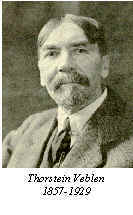

Introduction to Macroeconomics
Winter 2003
Dr. Bell


 |
 |
ECON-201 Introduction to Macroeconomics Winter 2003 Dr. Bell |
 |
 |
Professor: |
Dr. Bell |
Office: |
203B Mannheim Hall |
| Office Hrs: | 3:30-4:30 (Tue. and Thur.) and by appointment |
| Phone: | 235-5700 |
| E-mail: | bellsa@umkc.edu |
| Textbook: Macroeconomics for Today (2ndEdition), Irvin B.Tucker. You can pay bookstore prices, or you can save some serious money by purchasing the book on-line at www.amazon.com, www.varsitybooks.com or http://www.pattysbookstore.com. Last year, amazon.com had used copies available for $5.78 (paperback)! |  |
Course Description
: ECON 201 is designed to introduce the student to the fundamentals of macroeconomics.Learning Objectives: The course will be divided into three parts. In the first part of the course, we will focus on two different approaches to economic theory -- the (Neo)Classical approach and the Keynesian approach. The approaches differ in important ways and lead to quite different conclusions regarding economic policy. Students should be able to recognize an argument as stemming from one or the other approach. In the second part of the course, we will ask questions about the recent behavior of the U.S. economy. In this part of the course, we will ask questions like: (1) What is gross domestic product and how is it determined?; (2) What determines the levelof aggregate consumption, and how does consumption affect GDP?; (3) How are investment decisions made, and why is investment so important for economic growth?; and (4) what explains the level of economic activity at any point in time? Finally, we will turn to the question of economic policy. In this part of the class, we will focus on questions like: (1) What is theFederal Reserve and what does it do?; (2) Through what channels can monetary policy influencethe level of economic activity?; and (3) How can policymakers affect things like inflation and exchange rates?
Expectations: I have certain expectations concerning your responsibilities and your behavior in this class.
1. I expect you to read the syllabus and to be aware of the policies (e.g. grading, make-up exams, etc.) stated therein.
2. I expect you to behave appropriately in class. You are all adults, and I expect your behavior to reflect that. I will not tolerate talking, ringing cell phones, snapping gum or other disruptive behavior. Your class participation grade will reflect the degree to which you comply with these expectations.
3. I expect that you will put forth effort in learning the material covered in this class. Because class participation is a part of your grade, you will need to have read assigned readings before coming to class. Doing so will strengthen your participation grade and will make class discussions more interesting/fruitful.
4. I expect that if you are having problems with the material that you will come see me. I am more than willing to provide additional assistance so please do not hesitate to ask. Be sure not to wait until the last minute, however, as there is very little chance that I will be able to help you acquire a good command of the material a few days before an exam.
5. I expect you to behave with honesty and integrity. Cheating will not be tolerated and will result in an automatic F (in the class) and possible disciplinary action. I encourage you to prepare for exams in small study groups, help one another with difficult homework problems, etc., but you must demonstrate your own understanding on examinations and written assignments.
A Note on Academic Dishonesty: Academic honesty is fundamental to the activities and principles of a university. All members of the academic community must be confident that each person’s work has been responsibly and honorably acquired, developed, and presented. Any effort to gain an advantage not given to all students is dishonest whether or not the effort is successful. The academic community regards academic dishonesty as an extremely serious matter, with serious consequences that range from probation to expulsion. If a student is caught cheating, the instructor will assign a grade of Zero on that assignment, and the instructor will report the incident to the Office of the Provost. When in doubt about plagiarism, paraphrasing, quoting, or collaboration, consult the course instructor.Americans with Disabilities: If you have special needs as addressed by the Americans with Disabilities Act (ADA) and need assistance, please notify the Office of Services for Students with Disabilities, University Center LL 23, (816) 235-5696. Reasonable efforts will be made to accommodate your special needs.
Grading:
Participation – 25 points
Homework #1 – 25 points
Homework #2 – 25 points
Homework #3 – 25 points
Papers (2 total) – 20 points each
Pop Quizzes (6 total) -- 10 points each
Midterm #1 -- 100 points
Midterm #2 -- 100 points
Final exam – 100 points Thursday, May 8, 10:30 a.m. - 12:30 p.m.
Grades will be assigned in the following way: 465-500 = A, 450-464 = A-, 435-449 = B+, 415-434 = B, 400-414 = B-, 385-399 = C+, 365-384 = C, 350-364 = C-, 335-349 = D+, 315-334 = D, 300 - 314 = D-, 0 - 299 = F.
Specific Policies:
Homework: Due dates will be assigned in the coming weeks. Because I will go over the assignment on the day it is due, no late homework will be accepted.* There will be no exceptions to this rule. If you are going to miss class, be sure to have someone turn your assignment in before I go over it. If you are highly risk averse, you should turn in your assignment early. Each homework assignment is roughly 8% of your total grade, so you do not want to lose these points.
* Late homework will be accepted if the student can provide documentation for an excused absence.
Makeup Exams: Make-up exams will be given only to students with an excused absence. Documentation must be provided. Students who oversleep, forget about a test, aren't prepared, have other exams scheduled on the same day, etc. will not be allowed to take a make-up exam. All make-up exams will be given on Monday, May 5.
Quizzes: There will be seven "pop" (i.e. unannounced) quizzes given over the course of the semester. Make-up quizzes will not be given under any circumstances.
Papers: Over the course of the semester, each student must find two articles related to the subject matter of this class. The object of the exercise is to get students to think about the underlying theoretical approach adopted by the author of the piece. Students must identify the piece as (neo)classical or Keynesian and provide evidence to support that classification. Articles can come from newspapers (e.g. The Washington Post, The Kansas City Star, The Wall Street Journal, etc.), magazines (e.g. Business Week, The Economist, U.S. News and World Reports, etc.) or other periodicals. The same source cannot be used more than once (i.e. you cannot submit two articles from the Wall Street Journal). I want to know that you can distinguish between the perspectives. Thus, you must find one (Neo)classical article and one Keynesian article. You may not use articles that are distributedin class. Each paper should be 2-3 pages in length and should (1) provide a brief summary of the author’s argument, and (2) demonstrate why (using words, phrases or passages from the article) you have associated the author with one or the other approach. Be sure to develop the argument carefully so that it is clear (to me) that you really understand. Do not simply quote from the article and expect me to draw the inferences.
Schedule of Topics/Chapters:
January 14 -- Introduction to the Class and In-class Essay
January 16 -- Review of Basic Algebra
Tucker,
Appendix to Chapter 1
January 21 -- Basic Economic Concepts and
Terms
Tucker,
Chapter 1
January 23 -- Production Possibilities,
Opportunity Cost and the Notion of Scarcity
Tucker,
Chapter 2
January 28 -- The (Neo)Classical or Pre-Keynesian Model
January 30 -- Say's Law of Markets
Entry on Say's Law from the New Palgrave Dictionary
Malthus,
Thomas Robert, Reading from the Worldly Philosophers
Steinbeck,
Ch. 25, The Grapes of Wrath
Veblen, Thorstein, "Sabatoge"
Video:
The Keynesian Revolution
February 4 -- Gross Domestic Product
Tucker,
Chapter 5
Rowe, Jonathan. "The Growth Consensus Unravels," Real World Macro.
(I'll provide)
(WIEGO). "Counting Women's Homebased Work", Real World Macro.(I'll
provide)
"Job Stats: Too Good to Be True", Real World Macro. (I'll
provide)
February 6 -- Business Cycles and
Unemployments
Tucker,
Chapter 6
February 11 -- The Keynesian Model
Tucker,
Chapter 8
February 13 -- The Keynesian Model in
Action
Tucker,
Chapter 9
February 18 -- More on the Keynesian Model
and the Multiplier
Review
February 20 -- MIDTERM #1
February 25 -- Fiscal Policy:
(Neo)Classical Supply-Side vs. Keynesian Demand-Side
Tucker, Chapter 11
February 27 -- The Public Sector
Tucker, Chapter 12
March 4 -- Federal Deficits, Surpluses,
and the National Debt
Tucker, Chapter 13
March 6 -- Functional Finance and the
Federal Debt
Abba P. Lerner (I will provide this article)
March 10 through March 14 SPRING BREAK!
March 18 -- Readings from Real World Macro
"Is Big Government Really the Problem?", Robert Pollin
"Corporate Welfare: Pork for All", Abby Scher
"Disappearing Corporate Taxes", Marc Breslow and John McDermott
March 20 -- "Still a Bad Idea: The
Bush Tax Cut", John Miller
"The Repeal of the Estate Tax: Dead Now -But for How Long?", John Miller
"So What's Wrong with Reducing the Marriage Penalty?", John Miller
March 25 -- Social Security
"Financial Aspects of the Social Security 'Problem'", Stephanie Bell and
L.Randall Wray. (I'll provide)
March 27 -- Money and the Federal Reserve
System
Tucker, Chapter 14
April 1 -- Money Creation
Tucker, Chapter 15
April 3 -- Monetary Policy
Tucker, Chapter 16
April 8 -- Readings from Real World Macro
"Focus on the Fed: The Bond Market Versus the Rest of Us", Doug Orr and Ellen
Frank
"How Do Fiscal and Monetary Policy Compare?", Arthur MacEwan
"Japan's Recession: The 800 Pound Crisis", Bill Tabb
"Transforming the Fed", Robert Pollin
"Saint Greenspan?", Ellen Frank
April 10 -- MIDTERM #2
April 15 -- International Trade and
Finance
Tucker, Chapter 18
April 17 -- Film, Globalization: Winners
and Losers
"The ABCs of 'Free Trade' Agreements
April 22 -- Film, Global Capitalism and
the Moral Imperative
Film, The Global Marketplace: The Benefits of Globalization
"Know-Nothings and Know-It-Alls: What's Wrong With the Hype About Globalization?
", J. Collins and J. Miller
April 24 -- Film, The New Rules of the
World
"The IMF Versus the World Bank", Arthur MacEwan
"Reforming the IMF: A Bluebring for the Global Economy", Ellen Frank
"Sweatshops 101", Dara O'Rourke
April 29 -- Film, Population Six Billion
May 1 -- READING DAY
May 8 -- FINAL EXAM